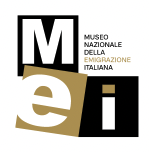A14 Migration and community
Living abroad means dealing with new customs, traditions and cultures. Getting to know the host society, with its characteristics which are often different from those in the migrant's home country, is not easy, not least because of prejudice and racism.
Migrating is not an easy choice, either for those who leave or for those who stay. These difficulties did not and still do not prevent migrants from participating in the growth process of their countries of arrival.
Area 14, dedicated to the relationship between migration and community, explores the relationships and interactions of the migrant, in continuous balance between the community of arrival and the community of origin, in four sections.
A selection of videos from the Rai Teche and Istituto Luce Archives introduces the public to the theme of the family dimension and intimate affections: how did those who left and those who stayed feel? What did the new situation feel like? What about life changed? How did people stay in touch at a time when there was no internet or social media? Were they always welcome or did they sometimes have to live as illegal immigrants? The theme of the domestic dimension is also taken up by a photographic sequence consisting of historical and contemporary images highlighting the different housing solutions available to Italian migrants throughout time.
Three video installations then propose, through a theatrical performance, doubts about choices related to sentimental life, food and work.
Archive stations, on the other hand, explore both the discrimination suffered and the criminal actions perpetrated by Italian migrants.
Lastly, through interactive installations, it is possible to learn about Italian migrants who have contributed to the social, cultural and economic development of their countries of arrival, recognising the migrant's active role in society.






